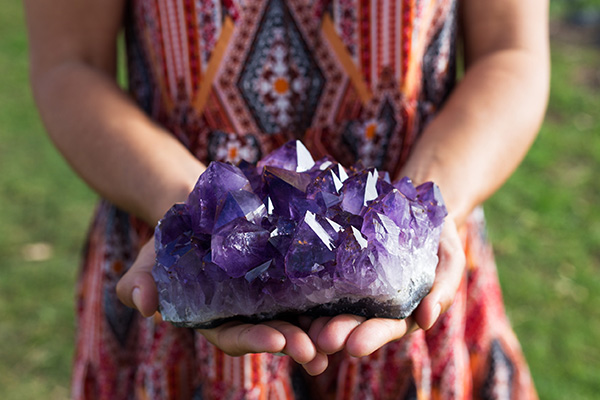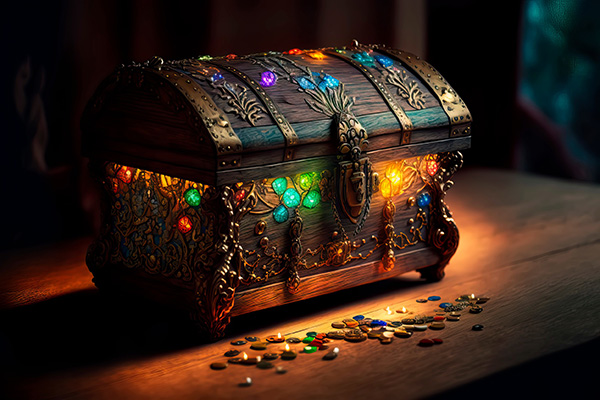psychic shielding
Become A Magnet For Joy And Happiness
 Have you ever experienced such an intense level of joy after receiving wonderful news or a successful outcome that not even the most negative person could dampen your mood or ruin your day?
Have you ever experienced such an intense level of joy after receiving wonderful news or a successful outcome that not even the most negative person could dampen your mood or ruin your day?
Well, that’s the kind of energy you need to send out into the universe if you want to become a magnet for love, happiness and fulfillment.
Many people are constantly stuck in a cycle of negativity. They see the worst in every situation and project their pessimism onto everyone and everything around them.
As a psychic counselor, I’ve worked with many clients over the years who have fallen victim to the negativity of such naysayers and energy thieves – people who try to drag others down to their level to alleviate their own discomfort.
In these scenarios, I then guide my clients on how to better protect themselves energetically and maintain balance spiritually, mentally, emotionally, and in the worst cases, even physically.
They do this by creating an invisible shield that deflects the negativity. This shield sends the negative energy right back at the ‘happiness trolls,’ neutralizing their psychic attacks and preventing their pessimistic, toxic energy from affecting you.
Your life will take a major turn for the better when you realize that some people are not even aware of how their negativity affects others. Often these people have had very difficult lives or traumatic childhoods filled with anger and conflict. They are often carriers of serious levels of unresolved karmic debt, which they typically make no effort to address due to their lack of self-awareness and spiritual awareness. You cannot expect someone to break free of these karmic patterns and ancestral legacies if they are not aware that they even exist.
Empower Your Day With A 5-Minute Morning Routine
 Navigating modern life can be daunting these days, especially when juggling a business or career, family responsibilities, social commitments and personal and spiritual self-care (if there is any time left for such a ‘luxury’).
Navigating modern life can be daunting these days, especially when juggling a business or career, family responsibilities, social commitments and personal and spiritual self-care (if there is any time left for such a ‘luxury’).
Some days can feel like an endless climb, a never-ending hamster wheel. But I have learned that even the smallest adjustments in your lifestyle can invoke the most profound changes.
A spiritual self-care strategy that has worked wonders for me is my simple five-minute morning routine. It has transformed not only my personal life but also my psychic practice in ways I never imagined.
As a passionate artist and psychic professional, I often found myself feeling a little overwhelmed and scattered. Many of my mornings used to be chaotic and my energy was often all over the place, typically setting a stressful tone for the rest of my day.
I was desperate for a change. I needed a way to stay centered, focused and productive without adding more time demands and complexity to my already busy schedule.
Then it hit me: why not try a quick morning routine designed to centre and ground me, cleanse and shield my energy, and set positive intentions for the day ahead?
The morning is a particularly powerful time to practice such a routine, I thought. How we start our day obviously sets the tone for the hours that follow. A positive, focused start, empowered by a mindful soul connection to Spirit and the Divine, can only set the stage for an empowering and fulfilling day, while a chaotic, disconnected start only leads to stress, inefficiency and negativity. So, I decided to give it a go and have not looked back since.
The Mystical Healing Properties Of Amethyst
 Amethyst, an enchanting purple variety of quartz crystal, is celebrated not only for its stunning beauty but also for its powerful metaphysical properties.
Amethyst, an enchanting purple variety of quartz crystal, is celebrated not only for its stunning beauty but also for its powerful metaphysical properties.
Traditionally held in high regard as a spiritual and esoteric tool, this semi-precious gemstone is revered for its potent energy and versatile healing properties.
The captivating purple crystal is associated with the third eye and crown chakras, making it a powerful aid in enhancing spiritual awareness and deepening meditative states. Its calming presence also helps to quiet the mind, promoting a sense of inner peace and emotional balance, which is essential for spiritual growth and clarity.
Amethyst is also known for its protective qualities, shielding the user from negative energies and psychic attacks while fostering a connection to higher consciousness and universal wisdom. Whether used in meditation, healing rituals, or simply carried as a talisman, the amethyst serves as a trusted companion on the journey of self-discovery and spiritual awakening.
As a psychic practitioner, I’ve always felt a deep, almost magnetic affinity for amethyst in both my personal spiritual practice and my professional psychic work. This beautiful violet crystal has a calming energy that enhances my psychic awareness and helps me achieve a sense of inner serenity for connecting with the spiritual realm.
When I hold Amethyst, I feel a heightened sense of clarity and insight, as if the veil between the physical and spiritual worlds is gently lifted. Its calming energy helps me stay centered during readings, allowing me to channel messages with greater precision and compassion.
Is Your ‘Friend’ A Toxic Energy Thief?
 Do you have a friend who constantly makes you feel unbalanced and drained, while adding no value to your life? We’ve all had that so-called ‘friend’ who doesn’t seem to care much about our well-being. Sometimes they don’t even seem to like us at all!
Do you have a friend who constantly makes you feel unbalanced and drained, while adding no value to your life? We’ve all had that so-called ‘friend’ who doesn’t seem to care much about our well-being. Sometimes they don’t even seem to like us at all!
They are that fair-weather friend who drains your energy and constantly exhibits toxic behaviors that destroy your inner peace, steal your joy, and disrupt your spiritual balance. Interacting with them increases your stress or anxiety, and even triggers a sense of disconnection from your true self.
If you have such a “friend,” consider this a serious wake-up call. After all, with a friend like that, who needs enemies? And if you have more than one such friend, consider this an urgent intervention!
The truth is that having an energy vampire masquerading as a friend in your life poses significant spiritual dangers and negative effects on your overall health and well-being.
Constant interaction with someone who is unkind and unsupportive hinders your personal and spiritual growth. Instead of uplifting and encouraging you, they serve only to hold you back and may even discourage you from pursuing your dreams. These people are not your friends.
It reminds me of the karate classes I used to take. We were taught to have ‘situational awareness.’ In karate, this refers to being fully aware of your surroundings, including potential threats, opportunities, and obstacles during training, sparring, or self-defense scenarios. It involves being mentally present and observing the environment, the opponent, and any relevant factors that could affect the outcome of a situation.
Energy Imprint, Energy Cord, Or Entity Attachment?
 In my work, I often encounter people who are experiencing phenomena that are negatively affecting their energy field, causing them to suffer a loss of physical, mental, emotional, and spiritual health and well-being.
In my work, I often encounter people who are experiencing phenomena that are negatively affecting their energy field, causing them to suffer a loss of physical, mental, emotional, and spiritual health and well-being.
Usually these problems are simply due to their own negative thinking, or external negative energy imprints or residues that their aura has picked up from toxic people or environments. In many cases, it can be due to the energy cord of a dysfunctional or unhealthy romantic relationship or other types of energy cords with family, friends, or co-workers that are contaminating or draining their personal energy and vitality.
In some cases, however, these negative energy influences have a far more sinister origin that the “carrier” or victim is rarely aware of, while it is destroying their well-being and wreaking havoc in their lives.
The problem is that many people do not understand the difference between negative energy imprints, energy cords, and evil entity or spirit attachments. In my experience, the confusion is mainly due to the fact that the effects these three categories of negative energy phenomena have on people are often similar, leading to misinterpretation of the source or cause of these influences and disturbances.
Energy Self-Care Strategies For Empaths And Sensitives
 Empaths and highly sensitive people (HSPs) often feel drained by other people and certain environments due to their inherently sensitive nature and the way they interact with the world around them.
Empaths and highly sensitive people (HSPs) often feel drained by other people and certain environments due to their inherently sensitive nature and the way they interact with the world around them.
We face unique physical, mental, emotional and spiritual challenges because of our innate ability to deeply feel and absorb the thoughts, emotions and energies of those around us. While our sensitivity is a blessing and a gift to the world, it can also become a curse through overwhelming experiences of empathic overload and energy depletion.
Energetic self-care is therefore of paramount importance to the sensitive person. Every empath or HSP should adopt a daily routine of energetic self-care practices designed to cleanse, protect and rejuvenate their aura or personal energy field.
Mastering these practices is not only beneficial to our health and well-being, it’s essential for maintaining holistic balance, protecting our mental health in particular, and nurturing our deep connection to the world and those around us.
As empaths and HSPs, we can manage our energy more effectively by employing several strategies that help us maintain our energetic well-being, while navigating a world that can often feel overwhelming. The following are essential tools and strategies that can empower empaths and HSPs to thrive in their sensitivity and turn their deep empathy into their greatest strength through effective energetic self-care:
